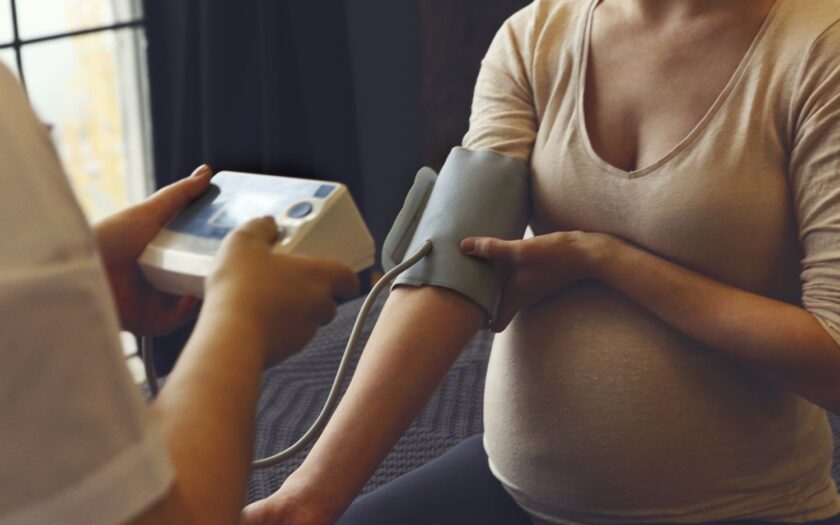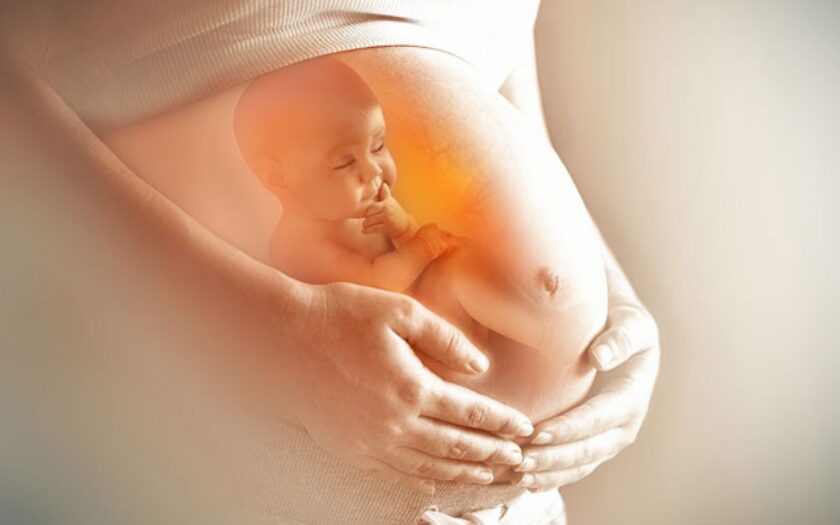Proteinuria is a condition in which protein (protein) is present in the urine in amounts greater than normal levels. Normally, small traces of protein may be present in the urine, but its concentration is usually very low and is not detected in routine urine tests.
Causes of proteinuria in pregnant women
Proteinuria in pregnant women can be caused by various reasons. Proteinuria during pregnancy can be normal, but it can also indicate more serious problems that require medical attention. Common causes of proteinuria in pregnant women:
- preeclampsia. This is a serious condition that can develop in pregnant women after the 20th week of pregnancy. Preeclampsia is characterized by high blood pressure, proteinuria, and edema (edema). Preeclampsia can pose a health risk to both the mother and fetus;
- eclampsia. Eclampsia is a type of preeclampsia that is characterized by seizures and can be life-threatening for both mother and fetus;
- urinary tract infections. Urinary tract infections can cause proteinuria in pregnant women;
- gestosis. This is increased blood pressure during pregnancy, which may be accompanied by proteinuria. Unlike preeclampsia, preeclampsia does not include symptoms such as swelling and changes in other organs;
- diabetes. Women with existing diabetes or those who develop diabetes during pregnancy (gestational diabetes) may experience proteinuria due to the effects of high blood sugar levels on the kidneys.
Some women with polycystic ovaries, especially those with coexisting polycystic ovary syndrome, may experience proteinuria. Kidney injury or other kidney diseases can cause proteinuria in pregnant women.
How does proteinuria manifest during pregnancy?
Proteinuria during pregnancy is a condition in which protein is present in the urine of a pregnant woman in an amount exceeding the norm. Proteinuria may be one of the signs of serious pregnancy complications such as preeclampsia or eclampsia. Symptoms of proteinuria during pregnancy:
- swelling. This is one of the most characteristic symptoms of proteinuria during pregnancy. Swelling may first develop in the legs and feet, but can then spread to the face, arms and other parts of the body;
- high blood pressure. Pregnant women with proteinuria may experience increased blood pressure. This may be one of the signs of the development of preeclampsia;
- pain in the upper abdomen. Women with proteinuria and preeclampsia may experience discomfort and pain in the upper abdomen, in the stomach area, which may indicate liver damage;
- the appearance of pain in the right upper quadrant of the abdomen. This may be a sign of liver problems, such as the development of HELLP liver breakdown syndrome (hemolysis, elevated liver enzymes, low platelet levels);
- visual impairment. Some women with proteinuria and preeclampsia may notice changes in vision, such as blurred vision, flickering before the eyes, or a feeling of “floaters” in front of the eyes;
- headache. Headaches can be one of the symptoms of preeclampsia, especially if they are accompanied by other signs such as swelling and high blood pressure.
It is important to note that proteinuria during pregnancy can be a serious condition and requires medical evaluation and care. If you suspect proteinuria or notice these symptoms, be sure to consult your doctor for diagnosis and treatment. Preeclampsia and eclampsia can be life-threatening for both mother and fetus and require immediate medical attention.
Diagnosis of proteinuria during pregnancy
Diagnosis of proteinuria during pregnancy usually involves a series of medical procedures and tests to determine the presence of protein in the urine and evaluate its levels. Methods for diagnosing proteinuria:
- Analysis of urine. This is the first step in diagnosing proteinuria during pregnancy. The woman gives a sample of her urine for analysis. A healthcare professional tests for protein in the urine. If protein levels are higher than normal, this may be a sign of proteinuria;
- repeated tests. If proteinuria is detected on the first urine test, your doctor will usually recommend repeating the tests to make sure the results are accurate. Sometimes temporary proteinuria can be caused by other factors, such as a urinary tract infection;
- blood pressure control. High blood pressure may be associated with proteinuria, especially if it is accompanied by other symptoms. The doctor will regularly measure the pregnant woman’s blood pressure and monitor its levels;
- blood tests. Additional blood tests, such as tests for hormone levels and kidney function, can help the doctor determine the cause of proteinuria and rule out other conditions such as preeclampsia or kidney infections;
- Ultrasound examination of the kidneys. Sometimes a kidney ultrasound may be done to evaluate the health of the kidneys and look for any abnormalities.
Diagnosing proteinuria during pregnancy is important as it can be a sign of serious complications such as preeclampsia or eclampsia, which require medical intervention and monitoring. If you suspect proteinuria or other unusual symptoms during pregnancy, be sure to discuss it with your doctor.
How is proteinuria treated in pregnant women?
Treatment for proteinuria during pregnancy depends on its cause and severity. Proteinuria can be a symptom of a variety of conditions, including preeclampsia (or eclampsia), urinary tract infections, and other medical problems with the kidneys or bladder.
Therefore, it is important to identify the underlying condition and treat it to reduce or eliminate proteinuria. General approaches to the treatment of proteinuria during pregnancy:
- therapy for the underlying condition. If proteinuria is caused by other medical problems, such as preeclampsia, urinary tract infections, or other conditions, your doctor will treat that underlying condition. Management and treatment of the underlying cause often helps reduce proteinuria;
- blood pressure control. If proteinuria is associated with high blood pressure, your doctor may prescribe medications to lower and control it;
- diet. In some cases, a protein-restricted diet is recommended to reduce proteinuria. This may be helpful for some kidney conditions.
Pregnant women with proteinuria often require more frequent visits to the doctor for medical monitoring and monitoring of both the mother and fetus. In some cases, your doctor may recommend rest and limited physical activity to reduce the risk of complications. In severe cases, especially when preeclampsia or eclampsia develops, hospitalization may be required for observation and treatment.
Complications of proteinuria for pregnant women
Proteinuria during pregnancy can be a sign of serious complications for both mother and fetus. Here are some of the major complications associated with proteinuria in pregnant women:
- preeclampsia. Proteinuria is one of the key signs of preeclampsia, a serious condition that can occur after the 20th week of pregnancy. Preeclampsia is characterized by high blood pressure, proteinuria, and edema. This condition can be dangerous for the mother and fetus and can lead to various complications such as problems with the liver, kidneys and other organs;
- Eclampsia: Eclampsia is a type of preeclampsia that is characterized by seizures (convulsions) in a pregnant woman. Eclampsia can be life-threatening and requires immediate medical attention;
- kidney damage. Proteinuria may be a sign of kidney damage or kidney disease, which can worsen during pregnancy and lead to complications for both mother and fetus;
- placental rupture. Preeclampsia and eclampsia can increase the risk of placental rupture (placental abruption), which can cause bleeding and threaten the lives of both mother and fetus.
It is important to emphasize that timely detection and management of proteinuria and its underlying causes are key factors in preventing these complications. Pregnant women with proteinuria should receive regular medical supervision and follow doctors’ recommendations to ensure the safety and health of both themselves and their unborn child.
Consequences of proteinuria for the fetus
Proteinuria in pregnant women can have a negative impact on the health and development of the fetus. Consequences of proenuria for the fetus:
- slow growth development of the fetus (hypotrophy). Proteinuria, especially in combination with preeclampsia, can lead to insufficient supply of nutrients and oxygen to the fetus. This may slow down the growth and development of the fetus, which may affect its health;
- premature birth. Proteinuria may increase the risk of premature birth. Giving birth to a baby before term can increase the risk to his health, since the organs and systems of the fetus may not be sufficiently developed;
- low birth weight. Proteinuria may be associated with low birth weight (hypotrophy), which can increase the risk of various complications and health problems in the newborn;
- lung problems. Premature infants born as a result of proteinuria and preeclampsia may experience lung and breathing problems due to underdevelopment of the pulmonary system;
- problems with the heart and circulation. Insufficient oxygen and nutrient supply to the fetus due to proteinuria can affect the development of the fetal heart and circulatory system;
- death of a baby. In the most severe cases, especially if there is insufficient treatment or insufficient medical care, proteinuria and its complications can lead to fetal death.
Therefore, it is very important that pregnant women with proteinuria receive regular medical supervision and follow the recommendations of doctors. Doctors can monitor fetal growth and development and take steps to manage complications associated with proteinuria to ensure the safety and health of both mother and baby.



